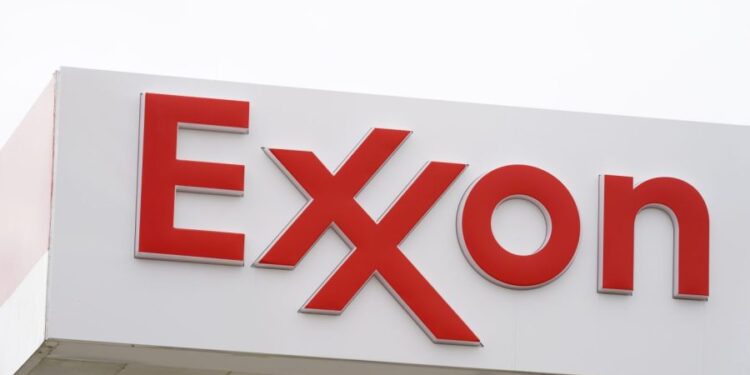
California Attorney General Rob Bonta (D) on Monday filed a lawsuit against ExxonMobil, alleging that the company has engaged in a decades-long effort to mislead the public about the recyclability of plastics.
Bonta, on behalf of California’s Department of Justice, accused the corporation of deceiving Californians for half a century with deceptive public statements and marketing tools that positioned recycling as a solution to a burgeoning plastic waste problem.
Through the lawsuit, filed in the San Francisco County Superior Court, the attorney general is aiming to compel ExxonMobil to end its allegedly deceptive practices, while also securing an abatement fund and civil penalties for harm caused to the community.
“Plastics are everywhere, from the deepest parts of our oceans, the highest peaks on earth, and even in our bodies, causing irreversible damage — in ways known and unknown — to our environment and potentially our health,” Bonta said in a statement.
“For decades, ExxonMobil has been deceiving the public to convince us that plastic recycling could solve the plastic waste and pollution crisis when they clearly knew this wasn’t possible,” the attorney general continued.
The lawsuit describes ExxonMobil as “the largest producer of plastic polymers used to manufacture single-use plastics,” adding that the company has “ramped up plastic production and deceptively promoted recycling as a cure-all for plastic waste.”
The complaint goes on to allege that the company “has aggressively promoted the development of fossil-fuel-based plastic products and campaigned to minimize the public’s understanding of the harmful consequences of these products.”
Today’s recycling capabilities are insufficient to contend with the volumes of plastic generated, the lawsuit contends, accusing the corporation of “knowing full well” that these solutions were inadequate.
“ExxonMobil lied to further its record-breaking profits at the expense of our planet and possibly jeopardizing our health,” Bonta said.
“Today’s lawsuit shows the fullest picture to date of ExxonMobil’s decades-long deception, and we are asking the court to hold ExxonMobil fully accountable for its role in actively creating and exacerbating the plastics pollution crisis through its campaign of deception,” the attorney general added.
In a separate plastics-related move on Sunday, California Gov. Gavin Newsom (D) signed a bill into law that will prevent grocery stores from providing customers with plastic bags, beginning in 2026.
As for Bonta’s lawsuit, environmental groups applauded the attorney general’s decision to file the complaint against ExxonMobil.
“This is the single most consequential lawsuit filed against the plastics industry for its persistent and continued lying about plastics recycling,” Judith Enck, president of the Beyond Plastics NGO, said in a statement.
“The plastics industry has known for decades that — unlike paper and glass and metal — plastics are not designed to be recycled and therefore do not achieve a high recycling rate,” Enck continued. “Yet, the industry made every effort to convince the public otherwise while profiting off the planetary crisis it created.”
Julie Teel Simmonds, a senior counsel at the Center for Biological Diversity, echoed these sentiments, describing petrochemical companies as “shamelessly polluting profiteers.”
“Every corner of the world is infiltrated by plastic pollution and we’re all carrying microplastics in our bodies,” Simmonds added.
A spokesperson for the American Chemistry Council (ACC) — an industry trade group that represents plastics manufacturers — said that because ACC isn’t named in the lawsuit, an inquiry would be “best directed to ExxonMobil.”
“For decades, California officials have known their recycling system isn’t effective. They failed to act, and now they seek to blame others,” an ExxonMobil spokesperson said in a statement. “Instead of suing us, they could have worked with us to fix the problem and keep plastic out of landfills. The first step would be to acknowledge what their counterparts across the U.S. know: advanced recycling works. To date, we’ve processed more than 60 million pounds of plastic waste into usable raw materials, keeping it out of landfills. We’re bringing real solutions, recycling plastic waste that couldn’t be recycled by traditional methods.”
— Updated at 3:54 p.m.






